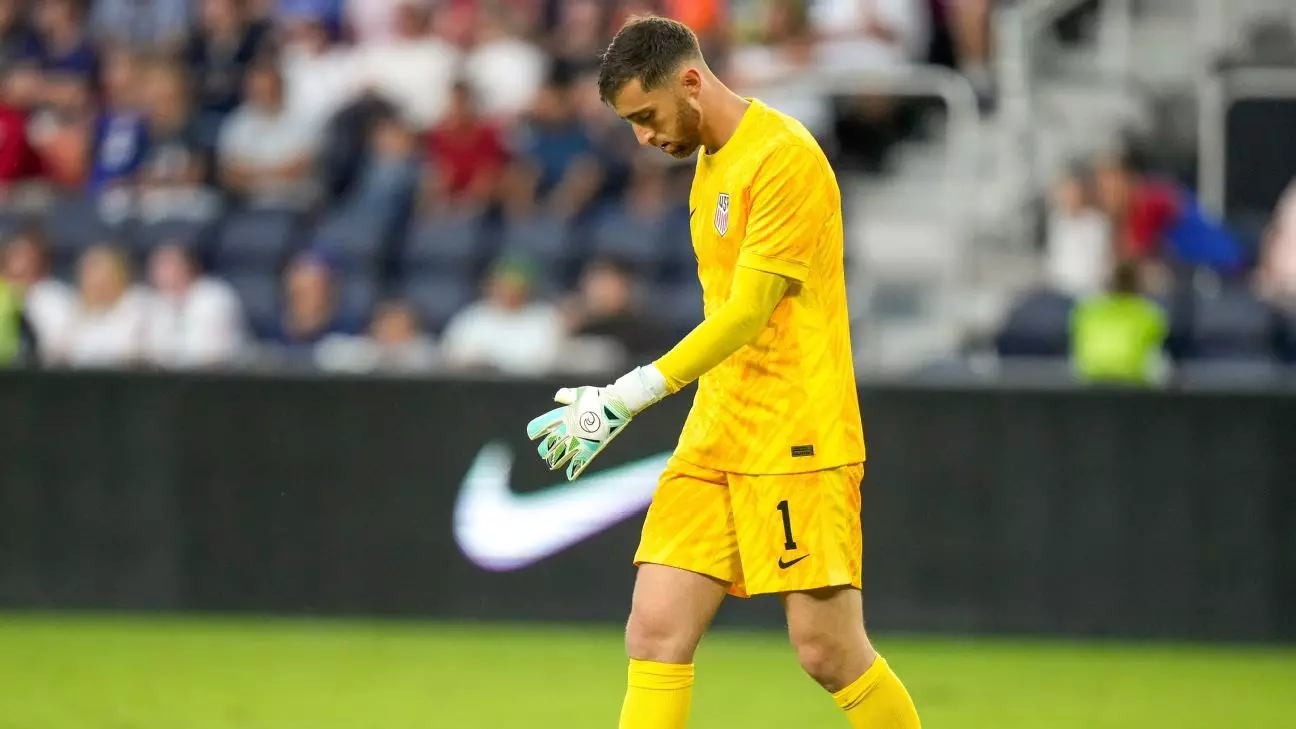The United States men’s national soccer team (USMNT) has recently concluded a tumultuous period marked by stagnant performance and missed opportunities. The September international window, which should have been an occasion for optimism, instead resulted in a disheartening 1-1 draw against New Zealand. While the game showcased the U.S. team’s control over possession, a last-minute goal salvaged hope for the Kiwi side and underscored the ongoing struggles of the USMNT. This outcome epitomized a challenging few months, during which the team was only able to secure one victory in seven matches, highlighting significant issues within the squad.
Despite a promising lead attainable through a well-executed sequence culminating in a goal by Christian Pulisic, the team faltered at the final hurdle. A lack of decisiveness in the closing moments—a recurring theme in recent matches—allowed New Zealand to equalize in an awkward manner that left many scratching their heads. Such mishaps reflect deeper frustrations within the program and illustrate a collective inability to finish matches effectively, as highlighted by goalkeeper Matt Turner’s observations post-game.
The question now becomes one of what can be salvaged from this lackluster period, particularly as the USMNT prepares for an important new chapter under the leadership of Mauricio Pochettino. His appointment as head coach was announced on a hopeful evening filled with anticipation for what the future could hold. With a storied managerial career, Pochettino offers not only experience but a vision that could inspire both players and fans alike. However, it remains imperative to recognize the challenges he will face upon taking the helm.
The recent match’s progress was marred not only by individual errors but also by a lack of unity and tactical clarity. While there were glimpses of fight—a noticeable improvement over the disordered 2-1 loss to Canada—the players must step up to perform consistently at a higher level. Pochettino’s arrival requires a cultural shift where the emphasis lies on accountability, winning mentality, and rigorous standards at all levels.
A new coaching philosophy is essential, one that embodies the tenacity and tactical astuteness that the players seem to crave. Turner’s recollection of his encounters with Pochettino’s Chelsea underscores this point; players must find a way to be both tactically disciplined and creatively free on the pitch. We are reminded that the transition will take time. The players need to adapt to new expectations and work hard to earn their positions in this evolving environment.
The arrival of Pochettino is perhaps the most significant development in recent USMNT history, offering a beacon of hope after a disheartening summer. His managerial style has often been associated with transforming teams into competitive forces, a feat that seems essential for the USMNT’s growth. The prospect of Pochettino fostering a winning culture resonates strongly with players like Pulisic, who recognize the collective need for a mental shift.
According to Pulisic, the players’ understanding of “culture” is vague but deeply felt. Winning must become part of the team’s identity, and this starts with dedicated practices and fostering competition among squad members. Defender Marlon Fossey’s assessment that Pochettino can translate experiences with elite players into development opportunities reflects a shared hope that change is not only achievable but also imminent.
Moreover, this next chapter begins with concrete opportunities for players to prove themselves in Pochettino’s system. As the squads are reshuffled and competition develops, players must vie for trust and playing time consistently. The tactical philosophies that Pochettino is renowned for—such as high pressing and fluid attacking movements—have the potential to invigorate and elevate USMNT performance significantly.
The imminent arrival of Mauricio Pochettino signifies a refreshing pivot in the journey of USMNT—a chance to resurrect the collective identity and performance level that has been sorely missing. Players and fans can find solace in the possibility of change, eagerly anticipating strategic innovations and a new mental framework that reflects Pochettino’s proven track record.
While the scars from the past remain fresh, the opportunity to foster tactical astuteness, team unity, and an unyielding winning mentality awaits. For the players, embracing the new ethos will not only help in leaving behind the disappointments of the previous summer but may also mark the beginning of a rejuvenation for the national team that could ultimately lead them to greater success on the world stage. As the future unfolds, the complete transformation under Pochettino can pave the way for a more competitive and inspiring USMNT, reclaiming the spirit that made them formidable in the first place.


Leave a Reply